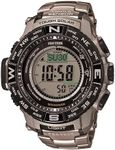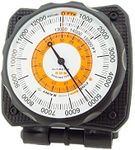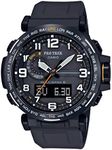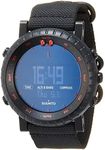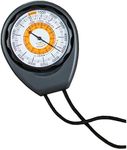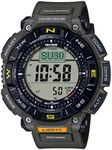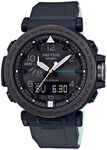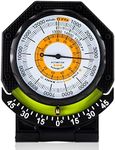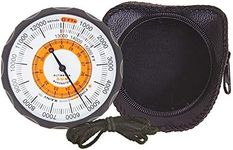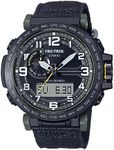Buying Guide for the Best Altimeters
Choosing the right altimeter can significantly enhance your outdoor adventures, whether you're hiking, climbing, or flying. An altimeter measures altitude, which is crucial for navigation and safety in various activities. To pick the best altimeter for your needs, consider the key specifications and how they align with your intended use.AccuracyAccuracy refers to how precisely the altimeter can measure altitude. This is important because accurate readings can help you navigate more effectively and ensure your safety. Altimeters can vary in accuracy, with some offering precision within a few meters and others within tens of meters. If you're engaging in activities where precise altitude readings are critical, such as mountaineering or aviation, opt for an altimeter with high accuracy. For general hiking or recreational use, a less precise model may suffice.
Barometric vs. GPSAltimeters can measure altitude using barometric pressure or GPS data. Barometric altimeters use air pressure to determine altitude, which can be very accurate but may require calibration. GPS altimeters use satellite data to measure altitude, which can be less affected by weather but may be less precise in certain conditions. If you need reliable altitude readings in varied weather conditions, a barometric altimeter might be better. For ease of use and integration with other GPS features, a GPS altimeter could be more suitable.
Battery LifeBattery life is crucial, especially for extended outdoor activities. Altimeters can have varying battery lives, from a few hours to several days. Consider how long you'll be using the altimeter and whether you'll have access to charging options. For long hikes or multi-day trips, choose an altimeter with a longer battery life to ensure it lasts throughout your adventure.
DurabilityDurability refers to how well the altimeter can withstand harsh conditions, such as extreme temperatures, water exposure, and physical impacts. This is important for ensuring the device remains functional in challenging environments. Look for altimeters with rugged designs, waterproof features, and materials that can endure rough handling. If you're planning intense outdoor activities, prioritize durability to avoid device failure.
Ease of UseEase of use encompasses how intuitive and user-friendly the altimeter is. This includes the simplicity of its interface, readability of the display, and ease of calibration. A user-friendly altimeter can make your experience more enjoyable and less frustrating. If you're new to using altimeters, look for models with straightforward controls and clear displays. Experienced users might prefer advanced features but should still consider overall usability.
Additional FeaturesAdditional features can enhance the functionality of an altimeter. These may include weather forecasting, compass, temperature readings, and connectivity with other devices. These features can provide valuable information and improve your overall experience. Consider what extra features might be useful for your activities. For example, a weather forecast can be crucial for mountaineers, while connectivity might be beneficial for tech-savvy users.
